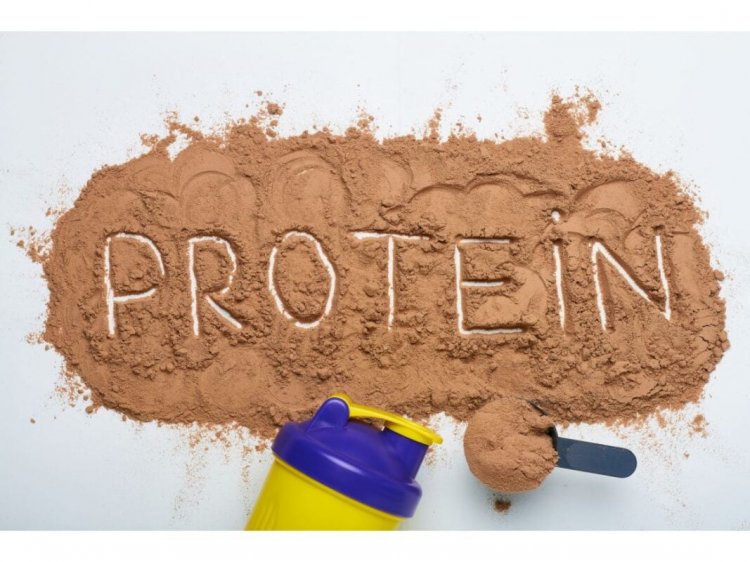Read About Protein Powder Free of Allergens
The market for protein powder free of allergens has grown in the last several years. It can be difficult to discover a protein powder that doesn't cause any negative responses for people who have food allergies or intolerances.

The market for protein powder free of allergens has grown in the last several years. It can be difficult to discover a protein powder that doesn't cause any negative responses for people who have food allergies or intolerances. Thanks to the availability of multiple solutions free from the top 8 allergens, consumers can now easily achieve their protein demands without sacrificing their health.
An Understanding of Protein Powder Without Allergens
It's important to define "allergen-free" precisely before learning about the advantages and main components of allergen-free protein powder. When it comes to protein powders, the term "allergen-free" designates goods that are devoid of the top eight most prevalent allergens, which include wheat, soybeans, tree nuts, fish, eggs, and crustacean shellfish. Since most food allergies are caused by these allergens, many people find that protein powders free of these allergens are a safe option.
What Is Meant by "Allergen-Free"?
A product is said to be allergen-free if it contains no substances that frequently trigger allergic responses. For those who have food allergies or intolerances, this is especially crucial because even trace amounts of allergens can cause serious side effects. Protein powders free of allergens are usually produced in facilities that follow stringent guidelines to avoid cross-contamination and guarantee the safety of the finished product.
It's important to consider both the ingredients that allergen-free protein powder has as well as those that it doesn't. Alternative protein sources including rice, hemp, or pea protein are frequently used to make these powders. These plant-based proteins are a great option for people who follow a vegetarian or vegan diet because they offer a comprehensive amino acid profile.
Additionally, to improve their nutritional value, allergen-free protein powders are frequently supplemented with extra nutrients. To enhance general health and wellbeing, some may include extra vitamins and minerals like calcium, iron, or vitamin B12. Digestive enzymes could be among the others, as they help with protein absorption and digestion.
Advantages of Protein Powder Free of Allergens
Selecting protein powder free of allergens has several advantages. Above all, it makes it possible for people with food allergies to get the protein they need without worrying about negative reactions. For athletes or those who exercise frequently and depend on protein for muscle growth and repair, this is especially crucial.
Furthermore, premium components are frequently used in the formulation of allergen-free protein powders to promote optimum health and wellbeing. Essential amino acids, which are necessary for muscle growth, repair, and general recuperation, are abundant in these powders. They also offer a practical and adaptable approach to add extra nutrition to your diet, going well with a variety of diets and lifestyles.
Furthermore, protein powders free of allergens can be an effective weight-management aid. Since protein tends to increase feelings of fullness, it can help suppress appetite and lower total caloric consumption. You may help yourself reach your weight loss or weight maintenance goals while making sure you're getting the nutrients you need by including allergen-free protein powder in your diet.
Finally, protein powders free of allergens can be a fantastic choice for people who have sensitive stomachs or digestive problems. In comparison to their allergen-containing equivalents, these powders are frequently easier to digest, which lowers the risk of gastrointestinal distress or bloating.
Important Components of Allergen-Free Protein Powder
It's important to take into account the main ingredients that contribute to the nutritional value and effectiveness of an allergen-free protein powder when choosing one.
Protein powders are gaining popularity as a practical means of adding important nutrients to one's diet. But it might be difficult to locate a protein powder that satisfies dietary requirements for people with allergies or sensitivities. This is where protein powders devoid of allergens are useful. These powders are designed specifically to supply the required protein without causing any negative side effects.
Plant-Based Proteins
Plant-based proteins are among the most often used substitutes for allergens in protein powders. Ingredients like pea protein, hemp protein, or brown rice protein are frequently included in these powders. In addition to having a superior amino acid profile, plant-based proteins also contain important nutrients including antioxidants and fiber.
For example, pea protein is high in branched-chain amino acids (BCAAs), which are necessary for muscle growth and recuperation. It's a great option for people with allergies or sensitivities because it's hypoallergenic and easily digested. In contrast, hemp protein is a complete protein source, which means it has all nine of the essential amino acids required by the body for proper operation.
Another plant-based option that is becoming more and more popular with health-conscious people is brown rice protein. It is safe for people with gluten sensitivity because it is free of both allergens and gluten. Brown rice protein is also a good source of energy and is quickly digested.
What's Your Reaction?

















